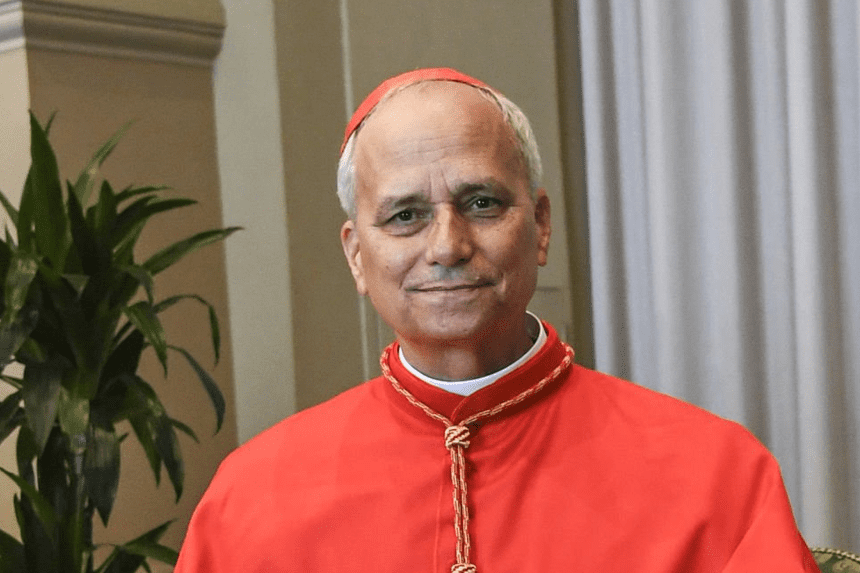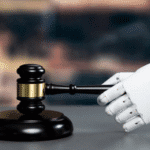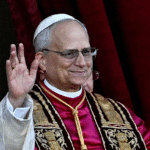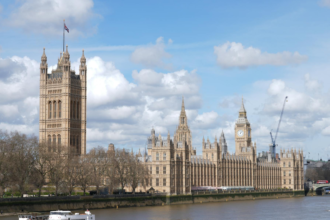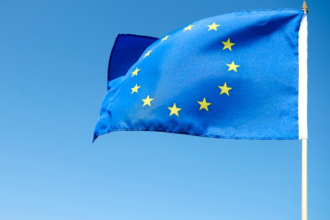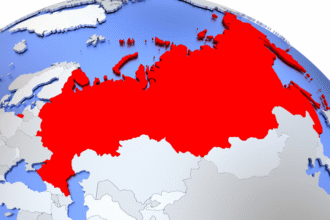Born Robert Francis Prevost, the first American pope’s election signals a turning point for the Catholic Church. A pope from the United States has become pope for the first time in papal history. For Catholics all around, this historic event gives hope and expectation as they search for a leader with a unique history and forward vision. Renowned for his dedication to social justice, environmental sustainability, and inclusivity, Pope Leo XIV is ready to lead the Church with an eye toward world concerns but firmly anchored in the great spiritual legacy of the papacy.
Pope Leo XIV is who? How did he ascend to the Papacy?
Robert Francis Prevost, born in Chicago in 1955, came from a devout Catholic family with Spanish and Franco-Italian background. Drawn to the priesthood as a young man, he served as an altar boy before being ordained in 1982. Shortly, a few years later, his path into the service of the Church sent him to Peru, where he spent many years serving as a missionary in underprivileged and far-off regions. Emphasizing social outreach and caring for the underprivileged, this event profoundly affected his attitude to leadership.
Apart from other cardinals, Pope Leo XIV’s missionary activity in Peru combined with his long-term pastoral experience distinguishes him. Being the first American pope, his election is considered as a link between the American and Latin American Catholic populations. His strong bond to both North and South America gives him a worldwide view.
Though my grandparents were all immigrants, French, Spanish… I was born in the United States. He once said, providing insight into his identity and how it shapes his involvement in the Church: I was raised in a strongly Catholic home.
Following his years in Peru came notable positions in the Church, notably his 2014 appointment as Bishop of Chiclayo and later Archbishop of Lima. Strong dedication to pastoral care and social justice defined his leadership; he soon became well-known for his honesty, compassion, and creative ideas on Church administration.
How Will the First American Pope Approach World Church Concerns?
Pope Leo XIV joins the papacy at a period when the Catholic Church is dealing with a spectrum of worldwide issues. There is much to address, from climate change to migration, economic inequality, and the changing role of women in the Church. Leo XIV’s leadership, as the first American pope, promises a new, inclusive viewpoint.
Pope Leo XIV has shown great dedication to social justice in his early talks. Pope Francis, like his predecessor, calls for environmental sustainability, migrant rights, and a more inclusive Church leadership style. Leo XIV’s attention on these problems shows his long-standing opinions on the need of attending to the needs of the underprivileged and the defenseless.
His support of environmental justice will probably be one of his main leadership motifs. During his tenure as Cardinal, Pope Leo XIV has already made major progress in this field, endorsing projects inside the Vatican, a n including the installation of solar panels and the acceptance of electric cars.
Speaking about climate change last year, he said, “It is time to move from words to actions.” As Francis works to solve environmental damage and motivate worldwide campaigns against climate change, this proactive attitude is expected to remain present in his papacy.
The first American pope also arrives at a period when migration, especially from war-torn areas and areas hit by financial difficulty, is soaring worldwide. Pope Leo XIV’s encounters with underprivileged groups in Peru would surely influence his perspective on problems of migration and refugees. Read another article on Pope Francis’s Final Resting Place
Why Does the Name "Leo" Have Significance?
Inside the Church, the name “Leo” has great historical weight. Leo I, the first Pope Leo, was well-known for trying to stop Attila the Hun from attacking in 452. Celebrated for his ideas on social justice and his writings on worker rights, Pope Leo XIII ruled from 1878 to 1903. Pope Leo XIV signals a dedication to active participation with modern concerns by selecting the name Leo XIV, therefore aligning himself with the social justice legacy of past pontiffs.
Leo XIV’s name reminds us of the Church’s long-standing focus on justice, compassion, and leadership during times of crisis—that of the first American pope. Pope Leo XIV is expected to interact with the contemporary issues of inequality, economic disparity, and the social consequences of globalization, same as Pope Leo XIII confronted the industrial revolution and the ascent of socialism in the 19th century.
Which reforms will Pope Leo XIV give top importance?
Pope Leo XIV’s attitude to reform inside the Church is among the most expected features of his rule. Over his career, he has showed a great dedication to openness, social justice, and diversity. Many hope he will carry on Pope Francis’s efforts on changing Church leadership and guaranteeing the hearing of underprivileged voices.
Pope Leo XIV’s major area of attention will probably be the part women play in the Church. He agreed in 2023 with Pope Francis’s choice to let women join the Dicastery for Bishops, the Vatican body in charge of choosing bishops. He observed that the participation of women in decision-making procedures “contributes significantly to the process of discernment.” This suggests that Leo XIV will keep pushing for women to hold leadership roles inside churches.
Pope Leo XIV observed of women in the Church, “Their point of view is an enrichment,” stressing the need for several points of view in determining the course of the Catholic Church.
How Would He Approach Difficulties and Controversies?
Pope Leo XIV will have to negotiate various problems that have long dogged the Church; no papacy is without difficulties. The continuous sexual abuse scandals have cast a shadow of mistrust over the Vatican; so, Pope Leo XIV will be expected to spearhead initiatives aiming at restoring openness and responsibility inside the church.
His past as bishop and archbishop shows a dedication to openness. Although the more general Church scandals affected his diocese in Peru, there is no evidence pointing to any cover-ups. His contribution to changing Church governance will probably be in ensuring that the Church stays answerable to its people and in enhancing safeguarding policies.
Pope Leo XIV, the first American pope, will likewise come under further examination from a worldwide audience. His leadership approach will be under great observation; his success will depend mostly on his capacity to lead with integrity and compassion.
In essence, a new era for a worldwide church.
A turning point in the history of the Catholic Church, Pope Leo XIV’s appointment as the first American pope defines His background, morals, and worldwide viewpoint equip him especially to guide the Church through the demands of the twenty-first century. Focusing social justice, environmental sustainability, and inclusivity, Pope Leo XIV is ready to carry on the legacy of his forebears while attending to the pressing needs of the modern society.
As the Church works to change and satisfy the demands of its worldwide membership, Catholics all around are looking to Pope Leo XIV for direction. The world will attentively follow as he starts his pontificate to observe how the first American pope guides the Church into a fresh phase of service, justice, and rejuvenation.


